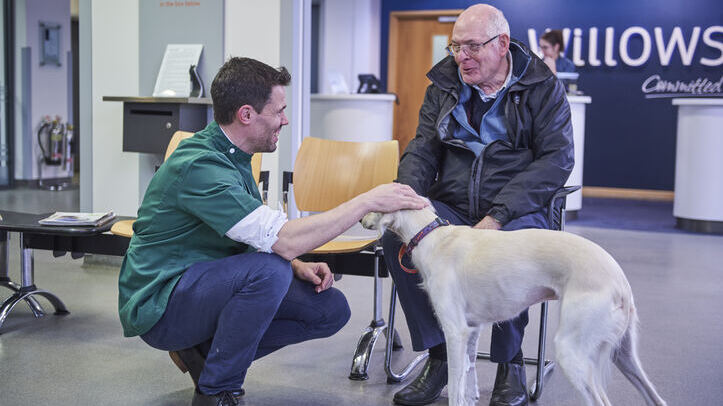Vet practices could be required to publish comprehensive price lists, and to be clear if they are part of a large group, under proposals recommended by the UK’s market competition watchdog.
The Competition and Markets Authority (CMA) has today (October 15) published the provisional decision in its market investigation into the UK’s £6.3 billion veterinary services market.
A total of 21 measures have been proposed by the authority to “reinvigorate competition”, including better information on prices, treatments, medicines and ownership, a price cap on written prescriptions and a new comprehensive price comparison website. In addition, the CMA recommended an overhaul of the current regulatory system for vets, which it said was “not fit for purpose”.
The published findings identified concerns that pet owners are often unaware of the prices of commonly used services and whether their local practices are part of large national chains, and “have no effective way of comparing vet prices when they get a pet or move areas”. As a result, owners may be paying twice as much for commonly prescribed medicines from vet practices than they could pay online, and often receive no written estimate for courses of treatment running to hundreds, or even thousands, of pounds, says the report. It concludes that consumers “do not benefit from strong competition between vet businesses”, adding that average vet prices across the market rose by 63% between 2016 and 2023. The CMA also found that pet owners pay 16.6% more on average at large vet groups than at independent vets.
The 21 recommendations include requiring vets to tell pet owners about savings they make by buying medicines online and automatically providing a written prescription to enable the pet owner to purchase the medicine elsewhere, as well as capping the price of providing prescriptions at £16.
In addition, the CMA has ruled that the current regulatory system is “not fit for purpose” as it only regulates individual veterinary professionals and not vet businesses, despite the majority of practices being part of a large corporate group, identified as CVS, IVC, Linnaeus, Medivet, Pets at Home and VetPartners.
Martin Coleman, chair of the Inquiry Group, said: “Pet owners are often left in the dark, not knowing whether their practice is independent or part of a chain or what a fair price looks like. They are sometimes committing to expensive treatment without understanding the price in advance, and they do not always feel confident asking for a prescription or buying medicine online – even when it could save them hundreds of pounds.
“Even where pet owners could access some of this information, it is difficult for them to compare prices and services – despite the fact that, in most of the country, there are several local practices they could choose between.
“We are proposing major reforms, and we believe that our proposals would enable pet owners to choose the right vet, the right treatment, and the right way to purchase medicine – without confusion or unnecessary cost.”
The CMA has opened a consultation on the Provisional Decision, with interested parties invited to respond by the deadline of November 12, 2025. The publication of the final decision is expected in February or March next year, with any reforms implemented through a legally binding CMA Order. Some measures could come into force before the end of 2026, although small vet businesses will be given additional time for implementation.
Responding to the CMA’s provisional decision, British Veterinary Association (BVA) president Dr Rob Williams said: “At first glance, there’s lots of positives in the CMA’s provisional decision that both vets and pet owners will welcome, including greater transparency of pricing and practice ownership; reform of the outdated regulatory framework; and support for our calls for regulation of vet businesses.
“However, we do have concerns that some of the measures outlined will impact how services are delivered. In particular, we need clarity on the proposed introduction of comprehensive price lists, because how vet care is delivered is varied and complex and unless the CMA gets this right, it could end up creating greater confusion for consumers, which in turn could have a negative impact on animal welfare.”
An IVC Evidensia spokesperson added: “The rise in vet bills over the past decade reflects major advances in capabilities, diagnostics and treatments, and a response to customer demands for advanced care for their pets, and significant increases in operating costs.
“Over the last five years, IVC Evidensia has invested over £200m in the UK in our clinics, equipment, and training our people, and invested significantly in increased salaries and benefits.”



